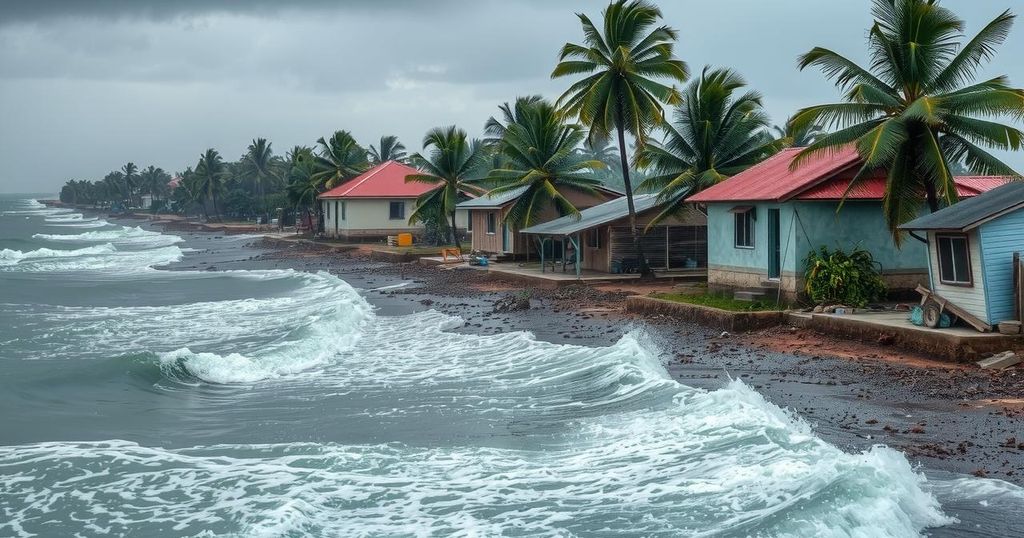World news
AFRICA, CABO DELGADO, DISASTER RELIEF, EMERGENCY RESPONSE, FLOODING, GOPI, ING, MAYOTTE, NATIONAL DISASTER RELIEF AGENCY, NATIONAL INSTITUTE FOR DISASTER RISK MANAGEMENT AND RED, NATIONAL INSTITUTE FOR DISASTER RISK MANAGEMENT AND REDUCTION, NATURAL DISASTER, NATURAL DISASTERS, NIASSA
Marcus Chen
0 Comments
Death Toll from Cyclone Chido in Mozambique Reaches 120
Cyclone Chido has resulted in 120 deaths, 868 injuries, and affected over 680,000 in northern Mozambique. With severe damage reported in Cabo Delgado, Nampula, and Niassa, the destruction comprises more than 140,000 damaged homes and significant impacts on schools and health services. Humanitarian efforts are underway to address the urgent needs of the impacted population.
The death toll from Cyclone Chido, which recently struck northern Mozambique, has tragically reached 120 individuals. The cyclone, characterized by severe storms and heavy rainfall, has resulted in injuries to 868 citizens and affected over 680,000 people across various provinces, including Cabo Delgado, Nampula, and Niassa. The Mozambican national disaster relief agency reported overwhelming destruction, with more than 123,000 families affected and upwards of 140,000 homes being either partially or fully destroyed.
The consequences of Cyclone Chido extend beyond physical damage; approximately 110,000 students have faced disruptions to their education, with significant impact on the local health and social infrastructure. Emergency shelters accommodating about 1,349 displaced individuals have been established in response to the crisis. The INGD has pointed out the critical need for improved planning and resilience to combat the effects of climate change, calling attention to the vulnerability of essential services.
Cyclone Chido was formed over the southwestern Indian Ocean on December 5 and made landfall on December 15, having previously affected Mayotte. Humanitarian organizations continue to seek assistance to meet the urgent needs of the communities in distress, as the impacts of the cyclone persist in illustrating the serious implications of climate change on affected regions.
Cyclone Chido represents a significant natural disaster impacting Mozambique’s northern provinces, where severe flooding and storms have compounded vulnerabilities in infrastructure. The cyclone serves as a reminder of the increasing frequency and intensity of such weather events, attributed to climate change. The region has a history of disaster susceptibility, exacerbated by inadequate infrastructure and emergency preparedness, making the role of disaster risk management increasingly vital in safeguarding the populace.
In summary, Cyclone Chido has led to devastating consequences in northern Mozambique, with a growing death toll and substantial damage to homes and infrastructure. The urgent need for humanitarian aid is clear, alongside a broader call for improved resilience and planning to protect vulnerable communities against future environmental threats. It is essential that both local and international efforts are mobilized to assist those affected and to fortify infrastructure against climate change.
Original Source: www.socialnews.xyz




Post Comment